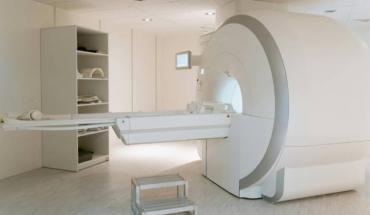Caring for the Mother: Physically and Emotionally
Postpartum care for the mother
After delivering her baby, a mother will continue to be monitored and receive pain relief, if needed. A mother and baby usually remain at the hospital for a couple of days to recover.
What does recovering from childbirth involve?
As the mother recovers, the following symptoms are not uncommon:
-
Bloody vaginal discharge that changes to brown, then whitish over the next few weeks after delivery
-
A tender vaginal area
-
Painful contractions that may continue after delivery (as the uterus returns to its original size)
-
Breast engorgement (as milk production begins)
-
Fatigue and soreness are common in the first few weeks
It is generally recommended that all new mothers schedule an appointment with their physicians/midwives six weeks after delivery to ensure proper healing.
The first few weeks as a mother
During the first few weeks, a mother needs to take good care of herself to rebuild her strength. Taking the following steps can help:
-
Take naps when the baby naps, to compensate for lost sleep at night from getting up to feed the baby.
-
Wear a supportive bra. Cold packs may help relieve breast engorgement and swelling. Warm compresses can be used to help stimulate the letdown of milk (a reflex that triggers the release of breast milk). If a mother chooses not to breastfeed, ice packs and binding the breasts will help alleviate engorgement in a couple of days.
-
If stitches were necessary during a vaginal delivery, taking warm, shallow baths (sitz baths) twice a day may relieve soreness and speed healing.
-
After a cesarean section, the mother should keep the incision clean and dry.
What are the "baby blues?"
It is not uncommon for women to experience the "baby blues" during the first days or weeks after delivery (most commonly seen occurring suddenly on the third or fourth day after delivery). The "baby blues" are characterized by the following symptoms, although each woman may experience symptoms differently:
-
Feelings of disappointment
-
Crying with no known reason
-
Irritability
-
Impatience
-
Anxiety
-
Restlessness
It is common for these "baby blues" feelings to go away soon after onset and, in most cases, without treatment.
What is postpartum depression?
Much more serious and lasting than the "baby blues," some women experience what is clinically referred to as postpartum depression. The following are the most common symptoms of postpartum depression. However, each woman experiences these symptoms differently. Symptoms include:
-
Sadness
-
Anxiety
-
Hopelessness
-
Fatigue or exhaustion
-
Poor concentration
-
Confusion
-
A fear of harming the newborn or yourself
-
Mood swings characterized by exaggerated highs and/or lows
-
Diminished libido (sex drive)
-
Feelings of guilt
-
Low self-esteem
-
Uncontrolled crying and with no known cause
-
Overconcern/overattentiveness for the newborn and/or a lack of interest for the newborn
-
Appetite changes
-
Sleep disturbances
-
Resentment
-
Memory loss
-
Feelings of isolation
What causes postpartum depression?
While the exact cause for postpartum depression is unknown, it is likely that a number of different factors, such as the following, are involved:
-
The changing of roles (as a spouse and new parent)
-
Hormonal changes during and after delivery
-
Stress
-
Personal or family history of mental illness, particularly postpartum depression
-
Marital strife
How is postpartum depression diagnosed?
In addition to a complete medical history, physical examination and/or psychiatric evaluation, diagnostic procedures for postpartum depression may include a thyroid screening to detect any hormonal or metabolic abnormalities or conditions that may serve as an underlying cause.
Treatment for postpartum depression:
It is important to note that most women who experience the "baby blues," postpartum depression, postpartum anxiety, and/or postpartum obsessive-compulsive disorder have never experienced these types of symptoms before, especially with such intensity. In any case, it is important for women to seek proper treatment early - not only to ensure that the newborn remains safe and properly cared for, but also so that the mother can resolve these symptoms and experience all the joys of motherhood.
Specific treatment for postpartum depression will be determined by your physician based on:
-
Your age, overall health, and medical history
-
Severity and duration of the symptoms
-
Whether or not you are breastfeeding
-
Your tolerance for specific medications, procedures, or therapies
-
Your opinion or preference
Treatment may include:
-
Medication (i.e., hormonal treatments and/or antidepressants)
-
Psychological treatment (may include the new mother and/or the family or spouse)
-
Peer support (i.e., support groups, educational classes)
-
Stress management and relaxation training
-
Assertiveness training (Some women need to learn how to set limits with family members, in order that they do not become overwhelmed and overworked.)





















